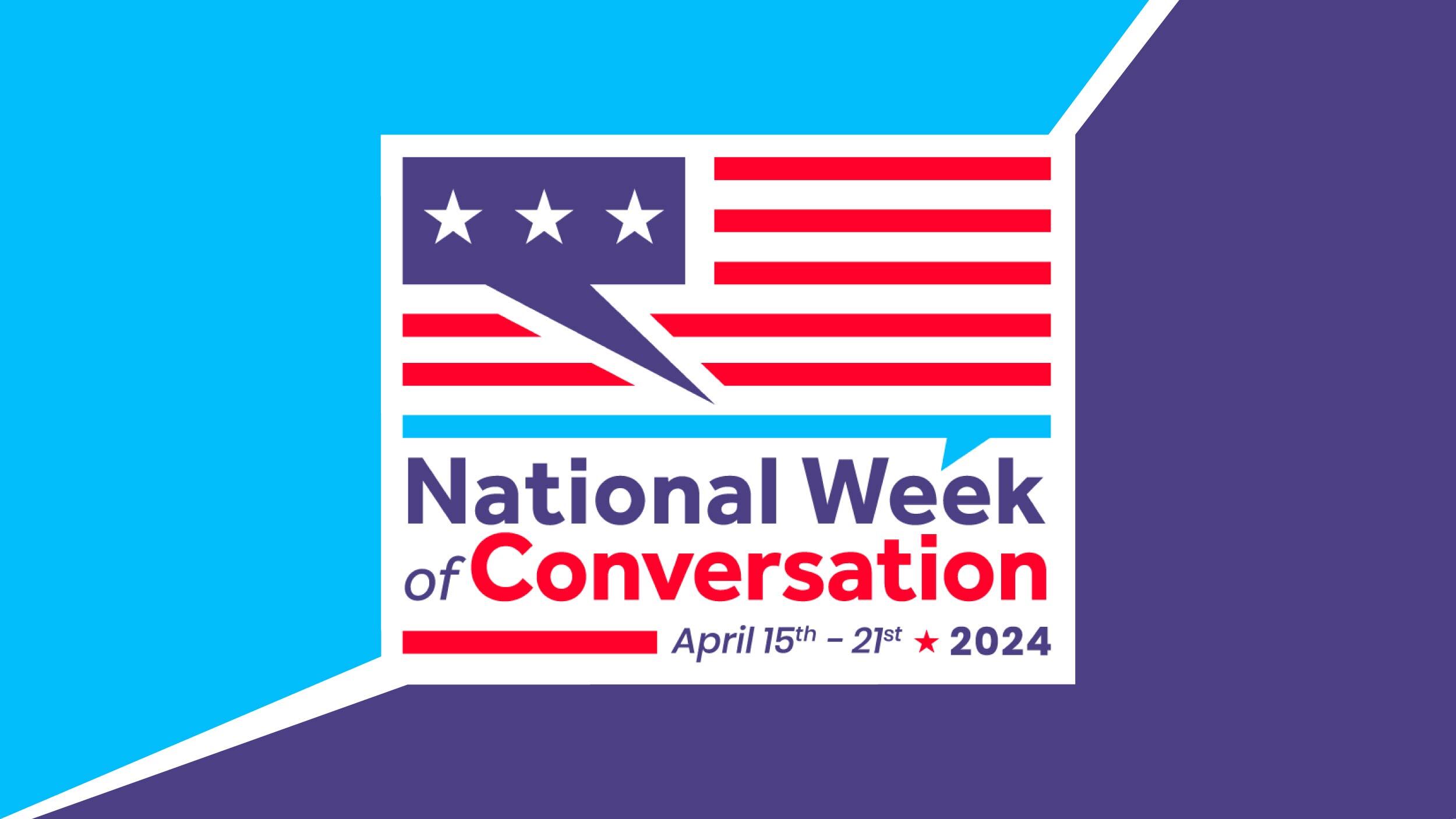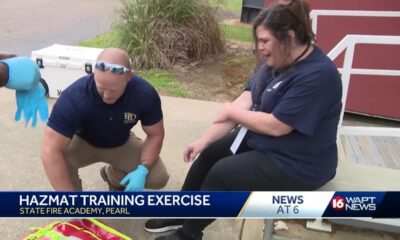Mississippi Today
Medicaid switch confuses beneficiaries, providers and draws feds’ scrutiny
Medicaid switch confuses beneficiaries, providers and draws feds' scrutiny
During the COVID-19 pandemic, Mississippi was not allowed to kick anyone off Medicaid under federal regulations. In exchange, the state received extra federal funding.
But Mississippi didn't simply maintain each person's coverage. Instead, if enrollees on a managed care plan technically lost eligibility (like a new mom more than 60 days after giving birth) or failed to update their information to prove they were still eligible, the Division of Medicaid quietly moved them to “traditional” or “fee-for-service” Medicaid.
That saved the agency money, because it meant that rather than paying a managed care company a monthly rate for each enrollee, it paid providers directly only when the enrollee sought care.
The shift apparently affected tens of thousands of Mississippians, raised concerns with providers who didn't understand why their patients' coverage had changed with no public explanation, and drew the attention of federal authorities who wanted to make sure the state was complying with the requirement of maintaining coverage during the COVID-19 public health emergency.
Managed care enrollment has declined from about 490,000 in June 2021 to about 364,000 in September, a drop of 26%. Enrollment is now well below pre-pandemic levels of 434,000 in September 2019, according to statistics published on the Division of Medicaid website.
The change does not appear to have directly altered Medicaid participants' access to care, because any provider who accepts a managed care plan must also accept traditional Medicaid. But managed care companies tout the benefits they offer members, like 24/7 nurse phone lines, incentives for going to appointments, and free fruits and vegetables, in addition to case management services.
The Division of Medicaid declined to respond to a detailed list of questions from Mississippi Today. The agency said Director Drew Snyder “is not giving interviews at this time,” though he appeared on the Paul Gallo talk show in late August. Instead, the agency provided statements through spokesperson Matt Westerfield.
“We didn't feel it was responsible to pay per member per month capitation payments to the managed care companies for the continuous enrollment population, particularly at a time when utilization was expected to remain low due to the pandemic,” Westerfield said.
He did not respond to a question asking if the agency could estimate how much money it had saved by shifting coverage during the pandemic.
The three managed care companies – United Health Care, Molina and Magnolia – did not respond to emails and phone calls requesting comment.
Medicaid implemented the switch in a way that left some enrollees confused about whether they had coverage.
Mississippi Today previously reported that postpartum women received notices informing them they had lost eligibility for Medicaid. Though Medicaid later sent a second letter telling them coverage had been reinstated, several women told Mississippi Today they still thought they didn't have Medicaid any longer, or they never received the second letter. That meant that some Mississippians who were entitled to coverage for things like postpartum depression and chronic conditions thought they didn't have health insurance and went without care.
Now, it appears people in other eligibility categories also received the letters.
According to documents obtained through a records request, staff at the federal Centers for Medicare and Medicaid Services (CMS) in September asked the Division of Medicaid to pause the notices it was sending “to beneficiaries whom the state has determined no longer meet eligibility requirements”— a much larger number of people than postpartum women.
On Sept. 16 – well over two years into the public health emergency – Snyder told CMS that the automated notices were being paused.
Westerfield did not respond to a question asking exactly how many people had received the letters.
When the COVID-19 pandemic began in March 2020, Congress passed a law requiring states to keep everyone on Medicaid throughout the public health emergency. That meant states had to do something they had never done before: change their systems to ensure people who lost eligibility kept coverage.
Making things more complicated for states, no one knew how long the public health emergency would last. In spring 2020, it appeared possible that the emergency would end within a few months, so it wasn't clear how long continuous coverage would last, a point Snyder made during his testimony before the Senate Study Group on Women, Children and Families in September.
Medicaid enrollment climbed each month as new people signed on and none of the usual churn took effect.
But for months, the Division of Medicaid did not inform providers or beneficiaries directly about the continuous coverage provision. It did not post a message on its website reminding people that they could use their coverage throughout the pandemic. It never explained continuous coverage in its quarterly bulletins to providers, nor in its news updates.
One provider bulletin in September 2020 described the additional federal funding Mississippi was receiving, increasing the match rate from 77 to 83 cents on the dollar.
“That should help us weather the storm despite an uptick in enrollment,” Director Drew Snyder wrote, not explaining that enrollment was up because no one could lose their Medicaid during the pandemic.
Westerfield said the agency expects providers to check patients' Medicaid eligibility during or before their appointment, and that providers can check eligibility at any time online. Since providers would be able to see their patients had Medicaid, the agency assumed the continuous coverage requirement wouldn't make a difference on their end.
“Any insinuation that the Division of Medicaid attempted to conceal information about the availability of continuous enrollment for (the) duration of the public health emergency is simply not true,” Westerfield said.
In September 2022, a website post titled "Preparing for the COVID-19 Public Health Emergency Unwinding" mentioned continuous coverage and urged stakeholders to help get the message out.
But some providers told Mississippi Today they learned about continuous coverage through word of mouth.
Dr. Emily Johnson, an OB-GYN in the Jackson area, learned about it for the first time from a Mississippi Today reporter in October. She did not know that her patients are not losing coverage 60 days postpartum as they normally do.
“It's always been an issue that women are very focused, that their Medicaid is going to run out and they want to get their postpartum contraception plan established before their Medicaid runs out,” she said. “I had no idea that that was no longer a pressure – that once their six-week or eight-week time was over, that they had continued access.
“It's really sad that this is the first time I'm hearing about that,” she said.
Enrollment in managed care peaked at 490,408 people in June 2021. The total number of Medicaid enrollees was 820,602, according to statistics on the Medicaid website.
Then, it began to fall, apparently because Medicaid began conducting eligibility redeterminations and moving people off of managed care if they would have been disqualified without the PHE, or failed to update their information. Westerfield did not respond to a question from Mississippi Today asking why managed care enrollment started to fall when it did.
By September 2022, managed care enrollment had fallen 26% from its June 2021 peak. Total Medicaid enrollment was just over 867,000.
Doctors started to notice that some of their patients' coverage status had changed.
Leaders of the Mississippi Chapter of the American Academy of Pediatrics wrote to Snyder in May 2022 asking what was going on. Physicians had reported “some pediatric patients are being transferred from the MississippiCAN programs to fee-for-service Medicaid."
“Unfortunately, the families are unaware of why this is happening,” wrote Hattiesburg pediatrician and chapter President Dr. Anita Henderson in an email obtained by Mississippi Today through a records request. “Recipients rotating off and on to the MississippiCAN or the FFS program are at risk of losing continuity of care, creating confusion for their families, and suffering avoidable medical complications. In addition, this can cause undue administrative and financial burdens for healthcare providers and possibly to the Division of Medicaid.”
Snyder responded that same day. He wrote that when Medicaid reviewed eligibility before the public health emergency, anyone who was not eligible or who didn't respond to requests for documentation would lose their coverage, but that could no longer happen.
“During the PHE, when the state conducts renewals, beneficiaries who are determined not eligible or who are not responding to requests for documentation get to keep their Medicaid coverage, but still may be moved from a managed care delivery system to fee-for-service,” he said.
Dr. Tami Brooks, a Starkville pediatrician, was CC'd in the email chain between Henderson and Snyder. Brooks is part of a group of pediatricians that holds regular meetings with Medicaid staff to discuss issues and concerns. She said she was glad that the switch to fee-for-service did not affect children's access to health care.
But she wants to make sure people understand that if they are on fee-for-service Medicaid, it means the agency has determined they're not eligible, and the only thing protecting their coverage is the public health emergency.
“We're letting our providers know, if you see a fee-for-service child, that likely means that mom needs to get back and recertify them,” Brooks said.
Federal authorities in early September reached out to the Division of Medicaid with concerns about how Mississippi was handling postpartum women's Medicaid coverage during the emergency.
“We received a complaint regarding the state's 60th day postpartum period policy,” wrote a Medicaid official in an email to Snyder. “We would like to set up a call to confirm our understanding on how the state processes coverage after the 60th day postpartum period.”
But within a few days, and after a call between Medicaid officials, including Snyder and CMS staff, the email correspondence broadened to a discussion of the notices Medicaid was sending people who were switched off of managed care coverage during the pandemic, not just postpartum women.
The notice people got when they were switched off managed care was headlined “MississippiCAN TERMINATION NOTICE – Loss of Eligibility.” It contained no information about continuous coverage during the public health emergency.
In an email, federal officials listed two regulations that they wanted to make sure Mississippi had not been violating when it moved people off managed care during the pandemic.
One rule requires managed care companies to inform beneficiaries of “significant” changes to their coverage at least 30 days in advance.
“We assume these enrollees received advanced notice of the transition back to FFS, but would ask the state to confirm that notices were sent to the managed care enrollees at least 30 days in advance of the transition,” a CMS official wrote.
But Mississippi Medicaid Deputy Administrator for Health Policy and Services Wil Ervin wrote that this rule didn't apply because the agency found it only concerned "significant" changes to information included in the managed care enrollees' handbook. Since the shift didn't affect anything in the handbook but instead changed enrollees' coverage entirely, the agency said it did not need to provide advance notice.
CMS also asked Mississippi Medicaid to confirm that the transition from managed care to fee-for-service Medicaid had not disrupted beneficiaries' access to care. Ervin said it had not.
After the meeting with the feds, Medicaid changed the managed care termination notice letter to clearly describe the recipient's ongoing coverage.
“This letter is to inform you that you are no longer eligible for MississippiCAN,” the revised notice read. “You will continue to receive full Medicaid benefits through original Medicaid until the end of the federal COVID-19 public health emergency.”
It's not clear whether Medicaid is sending people the revised notices or has paused them entirely. Westerfield did not respond to that question from Mississippi Today.
“CMS has met with Mississippi several times since the problem was identified to provide technical assistance regarding Medicaid notices,” a CMS spokesperson told Mississippi Today in late October. “The state agreed to pause the use of these notices pending further internal review and discussion.”
The spokesperson did not respond to Mississippi Today's request to interview CMS staffers who participated in the meetings with Mississippi Medicaid.
The public health emergency is currently slated to expire in mid-January. But the Biden administration has said it will give states at least 60 days' notice before lifting the emergency, and since no notice arrived in mid-November, it will be extended again.
When it ends, Mississippi and every other state will begin kicking people off Medicaid rolls once again. Nationally, between 5 and 14 million people could lose their coverage, according to the health policy nonprofit KFF.
States will have at least a year to complete their review of enrollees' eligibility, but they have a good deal of flexibility in how they conduct the reviews and how much time they take.
As of November, Mississippi still did not have a plan for this process, called the “unwinding,” Westerfield told Mississippi Today.According to KFF, 17 states lack such a plan currently.
“We have been in the process of developing a plan while actively reviewing all CMS guidance surrounding the PHE,” he said. “We are also aware that CMS has committed to giving states 60 days advanced (sic) notice before lifting the PHE. Upon completion, we will post our unwinding plan on our website.”
Doctors around Mississippi are concerned that when the public health emergency ends, hundreds of thousands of patients could quickly lose Medicaid coverage.
And people who were switched from managed care to fee-for-service could more quickly lose coverage, since the state has already determined they're no longer eligible or that they need to update their information to prove they still qualify.
Westerfield did not respond when asked whether the agency will prioritize ending coverage for people who have been moved to fee-for-service Medicaid.
“We are trying as pediatricians to try and get parents to make sure they have their information and go ahead and turn that back into the state,” Henderson told Mississippi Today in September. “We know there will be a grace period with the Division of Medicaid … But we certainly are concerned that when the PHE lifts, we will all of a sudden have thousands of children who may lose benefits, lose coverage and lose access to health care, which would obviously be detrimental to their health and wellbeing.”
This article first appeared on Mississippi Today and is republished here under a Creative Commons license.
Did you miss our previous article…
https://www.biloxinewsevents.com/?p=196916
Mississippi Today
Remembering ‘The Gunslinger’ of college football, Archie Cooley


Archie “The Gunslinger” Cooley, the most unconventional of football coaches, has died at the age of 84, and, frankly, I don't even know how to begin to describe him.
So let's begin like this: There will never be another one. Cooley, which is how he referred to himself so often in the third person, was an original. In the mid-1980s, in Mississippi, he wrestled the college football spotlight away from Ole Miss, Mississippi State, Southern Miss and Jackson State, his alma mater, and shined it ever so brightly on Mississippi Valley State.

He was a sports writer's dream. Need a column? Call Cooley. He always delivered. He wore a cowboy hat, usually with a feather in it, and that hat covered a brain that was years and years ahead of all others when it came to offensive football.
Back when most college football teams were running “three-yards-and-cloud-of-dust” offenses, Cooley's MVSU Delta Devils were spreading the field, never huddling, and throwing the ball on every down and then throwing it some more. The stuff you see big-time college and NFL offenses doing now, he was doing then.
The only thing the Valley Delta Devils had more of than passing plays were nicknames. Cooley was The Gunslinger. Jerry Rice was World, short for All World. Willie Totten, the quarterback, was Satellite. The offense was The Satellite Express. The offensive line was known as Tons of Fun. Vincent Brown, the great linebacker, was The Undertaker. Together, they were a blast.
The first time I saw then in person was Sept. 24, 1984, when they came to Jackson to play one of W.C. Gorden's terrific Jackson State teams. Valley had scored 86 points in its opener and 77 points in its second game. Rice was catching about 20 passes and four touchdowns a game. Totten's passing stats were so gaudy that the NCAA chief statistician accused Valley sports information director Chuck Prophet of making them up. Prophet sent the NCAA the game films and said, “Correct me if I'm wrong.” He wasn't.
So Valley came to Jackson, drawing a crowd of more than 50,000, and on the first offensive play, the Devils flanked four wide receivers in single file to the left side and one wide receiver, the one wearing jersey number 88, to the far right. No. 88 was Jerry Rice and Jackson State had only one defensive back to cover him.
Well, you know what happened next. Rice ran right past the defender, Totten lofted a pass down the field, which Rice caught and gracefully ran to the end zone a good 10 yards ahead of the defender.
Valley won 49-32. During the game's final minutes, Cooley paraded up and down the Valley sideline, waving a green and white Valley banner. Valley had not defeated JSU in 30 years. Afterwards, he led the Valley players in a victory lap around the Memorial Stadium. “We've done the impossible!” Cooley, a former Jackson State All American center and linebacker, shouted.
“Now I know how they've been feeling for the last 30 years,” Cooley said, and he said a lot more.
“Jackson State said they had to score 30 points to win,” he said. “Ha! They would have had to score 50 because we scored 49. I'm gonna talk now because they have to live with it for a year.”
Cooley could ever more talk. He could brag and he could back it up. He was from the old Dizzy Dean school of boasters: “It ain't braggin' if you can do it.”
Cooley could do it and did.
He was a Laurel native, a graduate of tradition-rich Oak Park High School, also the alma mater of such famous Mississippians as Olympic long jumping champion Ralph Boston and world renowned opera soprano Leontyne Price. Cooley grew up with next to nothing. “A lot of times, growing up, I'd open the refrigerator for something to eat, and the only thing in there was water,” Cooley told me. “So, I'd drink a glass of water and go out and play football.”
He played center and linebacker at Jackson State. He was a defensive coordinator for years at Tennessee State before taking the job at Valley. He said all those years as a defensive coach, he kept a notebook of plays other teams used that he knew he wanted to use when he became a head coach. Clearly, most were passing plays.
And, yes, it helped to have a receiver like Rice and a quarterback like Totten, both now in the College Football Hall of Fame. But Cooley called the shots and he brought the cameras and microphones to Itta Bena, which is Choctaw for “Home in the Woods.” I remember trying to give driving directions from Jackson to Itta Bena to a reporter from The New York Times. He said I lost him at “turn right at the cotton gin.”
That 1984 Valley team was undefeated at the same time SWAC rival Alcorn State was undefeated through mid-October. They were scheduled to play in November in Itta Bena. A young Jackson sports columnist – this one – wrote a column that the game should be moved to Jackson where 50,000 more people could see it. So, they moved it to Jackson and played it on a Sunday. More than 64,000 people attended, which made it the biggest pay day in the history of either school. Marino Casem's Alcorn State Braves won 42-28 in a game never to be forgotten by anyone who was there.
Cooley would leave MVSU after the 1986 season and go on to coach at Arkansas Pine Bluff, Norfolk State and Paul Quinn College in Dallas. His teams never again rose to the prominence of those Valley teams when CBS, NBC, ABC, The New York Times and Sports Illustrated all found their way to Itta Bena, where they told the story of the highest scoring college football team in history and their leader, the self-proclaimed Gunslinger.
This article first appeared on Mississippi Today and is republished here under a Creative Commons license.
Did you miss our previous article…
https://www.biloxinewsevents.com/?p=351172
Mississippi Today
Legislative panels will consider restoring some Mississippians’ voting rights
The two legislative committee leaders responsible for criminal justice measures say they will move bills forward to restore suffrage for individuals, raising the prospect that some Mississippians will have their voting rights restored.
House and Senate Judiciary B Chairmen Kevin Horan and Joey Fillingane announced Friday that they will have hearings on Monday to consider the suffrage bills.
The House earlier in the session passed a substantial restoration bill that would have automatically restored suffrage to people convicted of nonviolent felony offenses, but Senate Constitution Chairwoman Angela Burks Hill killed it without bringing it up for debate.
Lawmakers, however, can still consider individual bills to restore suffrage to people who have been convicted of disenfranchising felony offenses, though only a small number of those bills typically survive the legislation process.
Horan, a Republican from Grenada, said the House will not restore suffrage to people convicted of violent offenses or those previously convicted of embezzling public money. Additionally, Horan said people must have completed the terms of their sentence and not have been convicted of another felony offense for at least five years to be considered.
Fillingane, a Republican from Sumrall, said the Senate also will likely only restore voting rights to people previously convicted of nonviolent felony offenses – not violent crimes such as murder or rape.
The Lamar County lawmaker also said the amount of time after someone has completed their sentencing terms is not a major factor in his decision to advance a suffrage bill out of committee or not.
“The further out the better, but the time since completing the sentence doesn't really matter,” Fillingane said.
Under the Mississippi Constitution, people convicted of any of 10 felonies — including perjury, arson and bigamy — lose their voting rights for life. Opinions from the Mississippi Attorney General's Office have since expanded the list of disenfranchising felonies to 23.
About 55,000 names are on the Secretary of State's voter disenfranchisement list as of March 19. The list, provided to Mississippi Today through a public records request, goes back to 1992 for felony convictions in state court.
The state constitution gives lawmakers the power to restore suffrage to citizens, but the process is burdensome. It requires two-thirds of lawmakers in both legislative chambers to vote in favor of restoring suffrage in individual cases.
“We have a process in the Legislature that helps to restore individuals' voting rights, but it is a terrible process,” Democratic Rep. Zakiya Summers of Jackson said on Wednesday. “And it's a cumbersome process. And there really is no easy way to navigate it.”
The Legislature last year did not pass any suffrage restoration bills, but a willingness from both of the relevant committee chairs to push some of the bills forward could mean lawmakers will approve some bills this year.
Lawmakers have until the final days of the session to vote on suffrage bills, and legislators are coming to the end of their regular session, but it's unclear when they will adjourn.
Legislators still have major items they can consider, Medicaid expansion legislation, addressing the public retirement system and rewriting the public K-12 funding formula.
This article first appeared on Mississippi Today and is republished here under a Creative Commons license.
Mississippi Today
Look for the “why” when engaging in disagreement

“Bought sense is better than borrowed sense” lives in my memory, rent-free. I've always cringed at it because, at every stage of life, some lessons have been costly to learn.
At the Alluvial Collective, we show up to the office, on the screen, or in a community with one overarching challenge: to create or deepen the connections that will support collective thriving. That is our “For what.” We get to show up with wisdom purchased over our organization's last 25 years of work and with wisdom borrowed from many generations and traditions. In most traditions, self-reflection and stories reveal the path to where we should go and how we should travel.
As you engage in the National Week of Conversation, here are a couple of stories and a few thoughts to help you show up for each other, our communities, and our country.
What Do You Need
The first story emerges from a book called “Getting To Yes,” about negotiating.
Two people were arguing over an orange, and after some time, they decided to split it in half, feeling that equal parts were fair, like in elementary school. Before splitting the orange, they never asked each other the reason the other wanted it. As it turns out, one wanted the orange peel to flavor a cake, and the other wanted the orange's “meat” to eat.
In another story, an arriving house guest is deeply offended by their host's demand that they remove their shoes upon entering their family home. The visit goes off the rails and probably off the porch, too.
Each of these stories reminds you of tensions and dilemmas that are all too familiar in our families, towns, and – for me – our leadership discourse. We have notions about what the other person, or people, want, but at critical points, we need more humanizing insight into what makes it essential to them.
The Cost of Wisdom
In the second story, the home's foyer had a large rug on its floor that had been in the family for generations. Understanding that, I would have offered to remove my shoes.
We benefit from being curious about the interests, the “for what” the other person engages with, rather than just the “what” or their position. It may seem inefficient, but it pales compared to the value curiosity brings to relationships. Good relationships are win-win; our team leans on telling and hearing stories to build relationships. They are the wellspring of “for whats” and “whys.”
The truthful stories that your neighbor or coworker tells to you and themselves comprise reality as they see it. Your stories teach your in-laws and teammates history from your the learned or experienced vantage point. Dialogue and stories make our actions and attitudes make sense. This is where trust begins to form.
Dialogue over Debates and Diatribes.
As you begin your week, remember that how we engage matters as much as why. Diatribes and speeches don't make us good neighbors, and debates require someone to lose. We like authentic connections and hearing familiar themes in the stories of others. This week, open and honest dialogue is the strategy; to thrive together should always be the goal. We've paid too much for everything else.
Talk more; proclaim less. It's one of our mottos here at The Center for Practical Ethics (TCPE). Put another way, we might say our goal is to foster conversations rather than diatribes. This task is more difficult than most realize. What we know as ethicists is that merely having conversations isn't enough. There's a wide variety of skills needed for fruitful dialogue to take place, and some are harder to come by than others.
The ideal conversation partner is curious and humble, able to actively listen, knowledgeable about his or her own positions, familiar with basic principles of logical argument, charitable when interpreting claims, and—most importantly—willing to be wrong. Our work centers around equipping students with these skills and helping them navigate the complex ethical issues within our society's most contentious disagreements.
This year, National Week of Conversations (NWoC) coincided with Ethics Week here at the University of Mississippi (UM). Many of our events are conversation-based because dialogue is the best way to evaluate the ideas of others and open ourselves up to new information and interpretation of facts, while gaining a better understanding of our own views.
Two of our events in particular are worth examining more closely to see why NWoC and the work we do at TCPE are critical for sustaining civil society and the myriad public goods we all take for granted. First is our signature Just Conversations event. Students are placed in small groups and given a couple of ethical dilemmas to discuss. Trained student moderators guide the discussion to point out important aspects of the dilemmas, such as logical fallacies, analysis of stakeholders, ethical concepts and assumptions, and varying methods to achieve goals. Students often discover they agree with others—on the dilemma outcome and the details—far more than they expected.
Second, we have invited free speech scholar Sigal Ben-Porath to give a talk about her new book Cancel Wars: How Universities Can Foster Free Speech, Promote Inclusion, and Renew Democracy. Ben-Porath contends that universities are laboratories of democracy where students must learn to engage with disagreement. If the university is to be a place where truth is discovered, it must take seriously its historic social and educational obligation to train students in the skills needed for civil discourse and critical thinking. Her work is especially relevant in our ever more polarized times.
What these events demonstrate is that conversations—that is, engaged and fruitful conversations—must take place at all levels. Students must learn to talk to students just as much as faculty must learn to talk to faculty and administrators to administrators. What's more, these groups must talk to each other because while each of us have a role within academia (faculty, staff, student, dean, vice chancellor, etc.), we are also all citizens who work and live together.
Policies must be made, votes cast, businesses founded, churches attended, friendships established, and life lived. TCPE focuses on the skills of civil discourse by providing opportunities to cultivate those skills through Ethics Week, and highlights conversations that ask us to reflect on the role of universities as part of the NWoC.

Join the conversation.
Join us at Noon on Friday, April 19 for a VIRTUAL lunch and learn session exploring tools to make us better listeners, and in turn, better equipped to engage in meaningful conversations across differences.
The session will be led by Dr. Graham Bodie, professor and Interim Chair of the Department of Media and Communication in the School of Journalism and New Media at the University of Mississippi.
This event is free and open to the public. Register to receive more information.
This article first appeared on Mississippi Today and is republished here under a Creative Commons license.
-
Mississippi News6 days ago
Mississippi will soon be bombarded with cicadas
-
SuperTalk FM4 days ago
4 tornadoes touched down in Mississippi during latest round of severe storms
-
SuperTalk FM2 days ago
Chance of parole denied for man who killed 3 Choctaw Indian tribal members
-
SuperTalk FM5 days ago
2 Jones County correctional officers arrested in smuggling bust
-
Local News5 days ago
Almost 3,500 Mississippi Veterans have enrolled in VA health care in past 365 days, 28% increase over last year
-
Kaiser Health News3 days ago
To Stop Fentanyl Deaths in Philadelphia, Knocking on Doors and Handing Out Overdose Kits
-
SuperTalk FM4 days ago
Amazon project in Madison County to be over $10B, create more jobs than projected: report
-
SuperTalk FM2 days ago
2 arrested after missing man’s body found on side of Mississippi highway






































